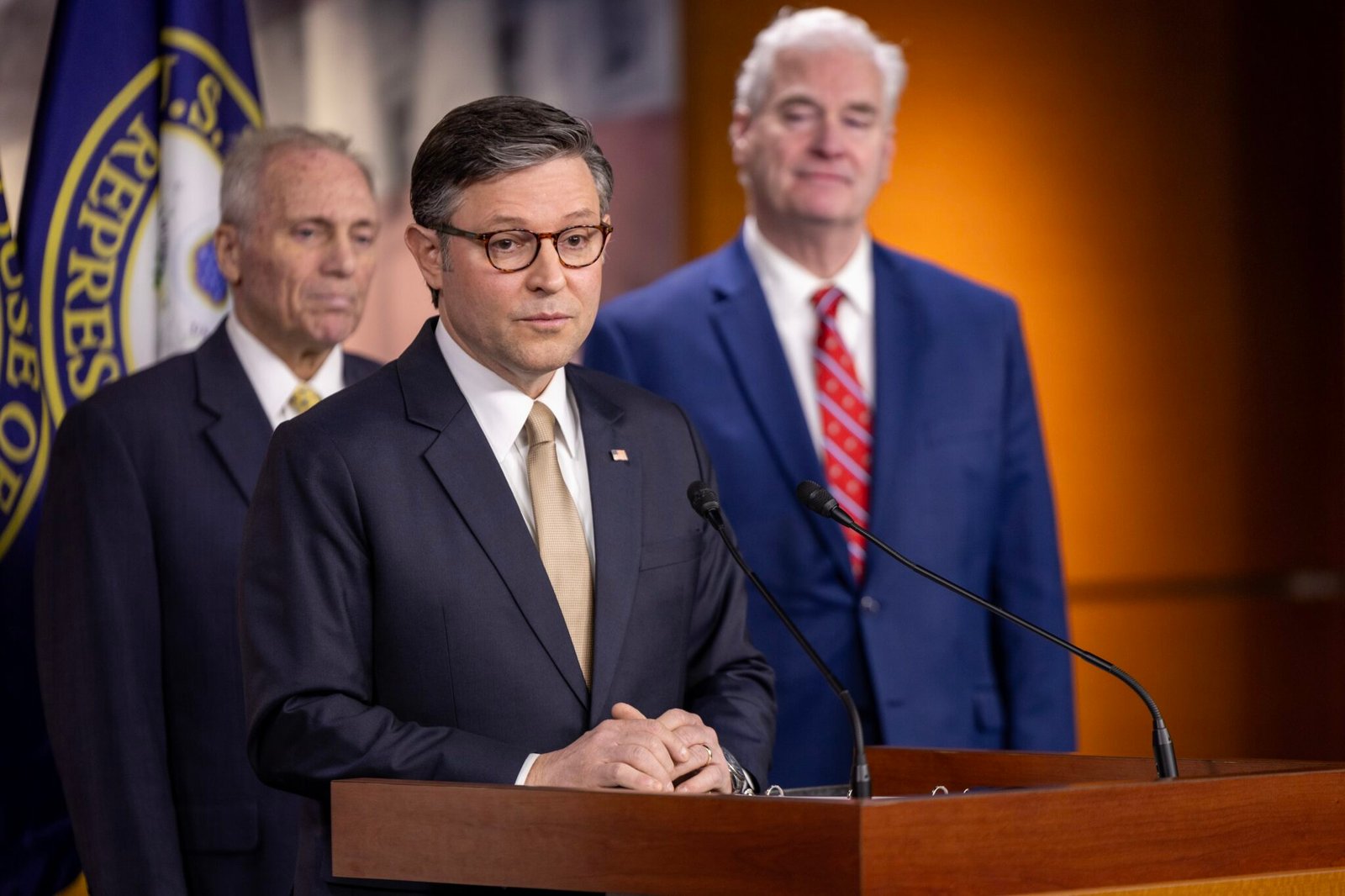border security
U.S. House Republicans Aim to Tackle Debt Ceiling with Border and Tax Reforms

WASHINGTON — U.S. House Speaker Mike Johnson announced on Tuesday that his primary focus will be to address the nation’s debt limit through the budget reconciliation process, setting aside any hopes of reaching a bipartisan agreement with Democrats.
By utilizing the reconciliation process, the GOP aims to implement significant changes in immigration, border security, and tax policy while circumventing the Senate’s 60-vote filibuster requirement.
“Our intention is to navigate the debt limit through reconciliation,” Johnson stated. “As the Republican Party, leading both chambers, we can establish the details ourselves. Regular order would necessitate negotiations with both parties, which we believe is less favorable.”
In December, President-elect Donald Trump urged GOP leaders to either eliminate the debt limit or suspend it for the duration of his term. The House Republicans initially included a two-year suspension in a short-term spending bill but had to withdraw it after failing to garner enough support.
At a press conference in Mar-a-Lago, Trump emphasized that his priority revolves around avoiding a default. “I don’t want to see a default. Nobody knows what could happen if we did — it could be catastrophic,” he remarked.
The prior suspension of the debt limit, established through negotiations between House Republicans and the Biden administration, expired on January 1. Congress has several months to devise a new debt limit solution before the country risks defaulting.
During this period, the Treasury Department will employ extraordinary measures to maintain timely payments for the nation’s obligations. However, failure to enact a new debt limit could plunge the country, and potentially the global economy, into a severe financial crisis.
Addressing the debt limit through reconciliation will compel Republicans to finalize their legislation before the approaching default deadline. The Treasury Secretary routinely updates Congress on the timeline for potential default, with the first letter likely arriving before the end of January.
Johnson expressed his commitment to preventing a default under unified Republican control and acknowledged the diversity of perspectives regarding the debt limit within the GOP. Traditionally, Republicans leverage debt limit discussions to secure policy wins during divided government but seem to approach these negotiations differently while holding full control.
“We have a broad spectrum of opinions in our conference, and we are actively addressing this,” Johnson explained, noting that extensive discussions with party members would be integral moving forward.
While emphasizing the pursuit of reduced government spending and a smaller federal footprint, Johnson clarified that raising the debt limit is a necessary step to alleviate default concerns, which ultimately influences market stability.
Johnson stated, “We intend to reduce government size and spending. Raising the debt limit does not imply we are willing to spend to its new threshold.”
The GOP plans to scrutinize various areas of government spending but has ruled out cutting Social Security or Medicare benefits, which constitute about a third of federal spending. Johnson affirmed, “We will not cut benefits, and that is our position.”
However, he noted that it is crucial to conduct an exhaustive audit of federal agencies to identify and eliminate waste and inefficiencies.
On the reconciliation strategy, Trump expressed flexibility, acknowledging his preference for a single, comprehensive bill but agreeing to a two-bill approach if it proves quicker and more efficient.
Discussions have emerged among Republican leaders regarding the ideal structure for the reconciliation package, specifically whether to combine immigration and tax policy measures or treat them separately.
House Majority Leader Steve Scalise indicated that GOP leadership hopes to initiate the budget resolution necessary for the reconciliation process in February. Following agreement in the House and Senate, relevant committees will start drafting their bills in March.
Ideally, the House aims to debate and vote on the final package by mid-April, provided enough bipartisan support is secured within the party.
With a slim GOP majority in the House, every vote counts. Currently, the Republicans hold 219 seats to the Democrats’ 215, leaving minimal room for dissenting votes. Additionally, the Senate holds 53 Republican seats, permitting only a few defections in the reconciliation package design.
All reconciliation provisions must adhere to the Byrd Rule, necessitating that proposals significantly impact revenue or spending, minimizing incidental provisions.
Last updated 12:23 p.m., Jan. 7, 2025


















